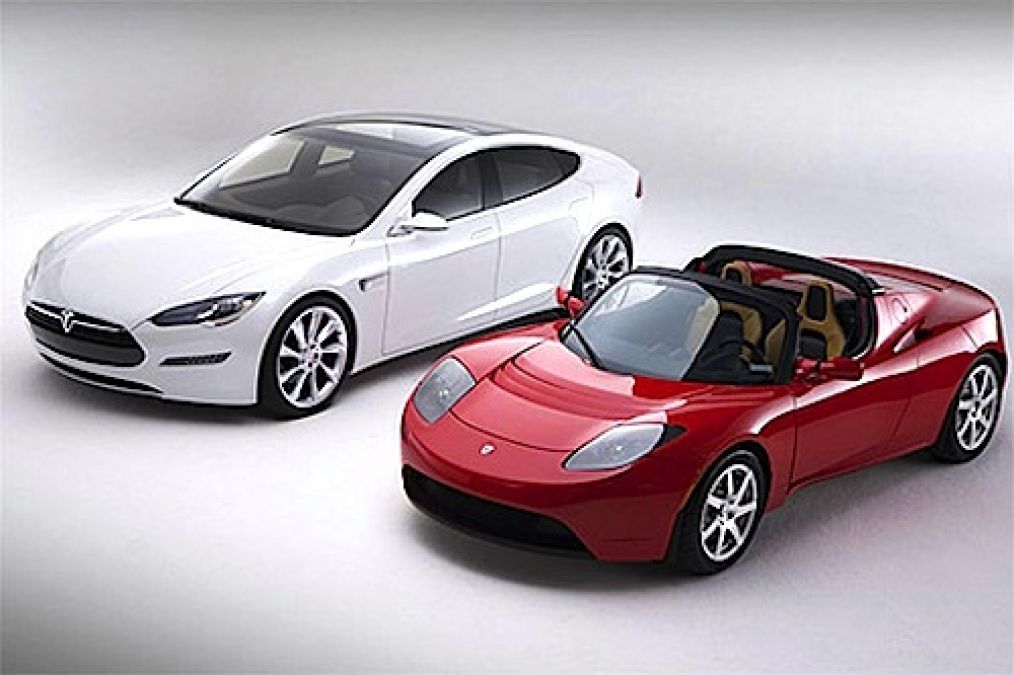The dealership model that sales gasoline cars day after day hasn’t changed much since its inception. Someone walks in, a car salesman shows what they want, and then shows them a better, more desirable model. The deal is usually sealed. Sounds over-simplified but a walk to most dealerships will show you this time tried system. So why haven’t car dealerships embraced alternative energy cars to boost sagging sales and the deplorable image they suffer from?
Would You Buy A Car From Them? Sadly enough, car dealerships and the buying process is not a good experience for most people. Visionaries have tried to change sales model and Apple has certainly succeeded in the impossible task, selling directly to its clientele while being in charge of the customer experience. Most car dealerships however are stuck in time. So how can Tesla challenge the car selling business model and is it doing it?
Over two years ago, former Apple Executive George Blankenship became the Tesla Motors Vice President of Design and Store Development. Since then, he has built a strong retail strategy and network for the company. In co-writer David Herron’s piece a few weeks ago: Tesla's transformation of automobile service stumbles in Massachusetts. David points out how Tesla’s sales and service model don't always agree with local laws, nor a few dealer associations in some states, including a state regulator that even goes as far as saying Tesla's stores violate state franchise laws that prohibit factory ownership of dealerships.
Massachusetts Takes Offense. The Massachusetts State Automobile Dealers Association, via its executive vice president Bob O'Koniewski says in AutoNews: "If a manufacturer sees that Tesla is successful with this kind of business model, who's to say they don't break out their own EV product lines and create a separate system that bypasses dealers? It's extremely problematic.". Bypass dealer, extremely problematic, those words explain what a thorn the Tesla model has become for lethargic car dealerships.
Tesla Is Not Alone. Tesla is not alone, since BMW is also becoming a point of contention. The New York State Automobile Dealers Association concerned about the company’s new disruptive business sales model has asked dealer lawyer Leonard Bellavia to write a report on the eventual threat of the BMW direct-to-consumer sales model. So far, BMW said it would distribute its i-cars through U.S. franchised dealers, avoiding any confrontations.
Old School Challenged By New School. This seems like a case of old model challenged by a newer one, business 1.0 by 2.0, and the last alpha wave of the dinosaurs. But if history is any indications of the potential success, then Apple has surely proven that a direct and controlled customer experience is something that works, something carmakers need more than ever these days. Imagine if Ford explained directly to incredulous potential customers their new gadgets and innovations? They not only would gather valuable first hand feedback but show what a family business the brand is. They could also target their audience much, much better and would open up a new market segment, the holy Grail of this new era of selling cars… the ever-so-connected twenty-something generation.
In Tesla’s case, this is just the tip of the iceberg. Tesla, BMW and CODA will disturb traditional car dealerships. In Ford’s case, the company has a stringent quality control that makes sure its dealerships know how to handle its electric hybrid models. In the meantime, we will witness the mutations of an old business model, as we’ve seen countless ones go before new ones are born. I for once like the CODA and Tesla shop experience. So give the Tesla shop a try on your way out an Apple store and see if this is not the future of selling cars, directly to you.






Comments
This site needs a proof
Permalink
This site needs a proof reader (spellchecking is not sufficient on its own)..
My neighbor's grandfather met
Permalink
In reply to This site needs a proof by Voltage (not verified)
My neighbor's grandfather met Henry Ford in Sandwhich Mass. 3 lifetimes ago. At that time Mr. Ford was planning to sell direct as well. They spoke and Mr. Lehan of Lehan's garage become one of the first Ford dealerships.
These laws are antiquated,
Permalink
These laws are antiquated, protectionist, and now only serve as an arbitrary barrier to protect a special interest group -- the automobile dealers. Created prior to any Internet commerce, the laws no longer make sense in today's modern markets. They were originally enacted to foster competition. But over time as our modes of commerce have changed, these laws have come to do just the opposite. If we allow them to stay in place, they will continue to stifle true competition, thus harming market efficiencies and the productivity of the automobile industry as a whole. Today, we consumers end up paying a little bit more for our cars due to this now unwarranted protectionism. These laws should have been changed years ago.
I guess I don't understand
Permalink
In reply to These laws are antiquated, by Jack Burgess (not verified)
I guess I don't understand why so little dealerships are jumping on the opportunity to give their image a facelift and get in on the future. I guess denial comes in full flavor in this field.